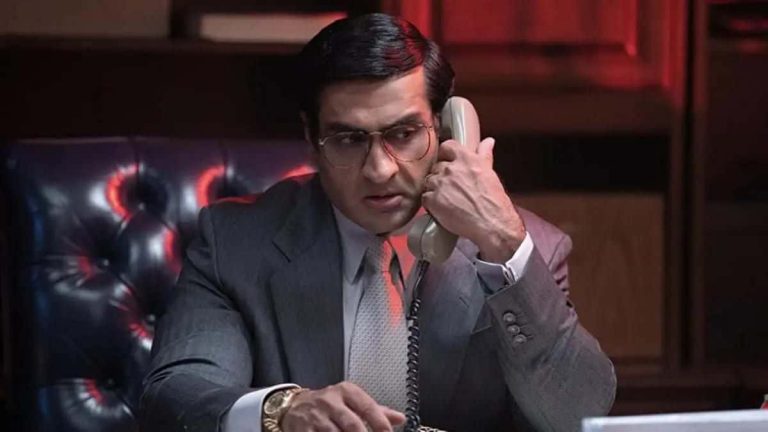Laal Singh Chaddha (2022) Review: Forrest Gump is one of those rare conservative films that I manage to like for its sentimental value. My political reservations against the touted classic are newfound, discovered only upon a recent rewatch. In the early days of cinephilia, I watched Forrest Gump with the baggage of its reputation and could admire its experience. After all, it is a feel-good English language film starring Tom Hanks. When I rewatched it with my parents, I could read its conservative tones. In my opinion, Forrest Gump essentially pitches the idea of an ideal “man” as conceptualized and authorized by the right wing. A man who does without question, for the responsibility of work defines this man’s life. A man who believes more and questions less. A man who is indifferent to pleasure but passionate about love. A man who understands love better than those boastful of understanding it. But the virtual harmlessness of this man masquerades his subscription to the status quo. He is away from discourse.
Now, it isn’t that men like Forrest don’t exist. They certainly do. And they also achieve. The course of their life takes all the turns as anyone else’s. They have a tryst with happiness and sorrow. Sorrow is permanent, happiness is ephemeral but sustainable. Telling the story of these men isn’t a problem. The problem lies when the man, a protagonist, becomes a personified argument from the side of the filmmaker. Therefore, quite disappointingly, Gump’s apathy-cum-indifference to counterculture despite his love for Jenny amplifies the perceived (by rightwingers) futility of counterculture itself. This is where Laal Singh Chaddha becomes better than Forrest Gump, in its dilution of political conservatism. The dilution is less intended and more default. The primary reason is the absence of a counterculture movement in India. India was never liberalized in any shape, despite all political turmoils. On the contrary, it has grown to become more intolerant and conservative. Laal Singh Chaddha doesn’t become antithetical to intolerance, but its positioning in a dynamic political landscape causes it to become unassumingly anti-establishment.
Hence, the film’s fundamental character is quite different from its inspiration. First, Kargil War was in response to an invasion, unlike the Vietnam War, which itself was an invasion. Even if Kargil War is considered from the perspective of the then-enemy state of Pakistan, the escalation of conflict is diplomatic. Vietnam War was a violent manifestation in the aftermath of the second red scare in which a self-proclaimed superpower attempted to bully a nation into a political ideology. Laal is non-violent, reminiscent of Desmond Doss from Hacksaw Ridge. So was Forrest, but perhaps Laal is more vocal about it. When the war occurs in Forrest Gump, it becomes a matter of survival for the elite American forces against the guerilla force of the enemy. When the war occurs in Laal Singh Chaddha, it becomes a matter of survival for all involved. The loss of life is given sufficient focus to highlight the futility of war itself.
While being (or pretending to be) politically neutral, Laal Singh Chaddha talks about major events in the history of modern India and its after-effects without omitting the causes. It exposes its irreligious stance in passages. Laal Singh Chaddha is what Forrest Gump poses to be. As mentioned earlier, Forrest is the right winger’s idea of himself. The applied simplicity and limited comprehension of the protagonist are to tell that we reject inherent sociocultural complexity for its pretense. Rather, we act to make the world function while the rest of you (us) only talk. Laal Singh Chaddha is actually about simplistic virtues and spontaneous living. Innocence does not envelope deceit. Is it very different? No. In the end, Laal also stands for the most rational choice for those involved, as did Forrest Gump. Laal is also made to be the optimum candidate for familial and professional responsibilities. It also says that you can waste your time as much as you wish, for you only have to take refuge in me. In this way, Laal Singh Chaddha is as inherently patronizing as Forrest Gump.
Everything isn’t a betterment in this adaptation. The adaptation of Jenny in Rupa is evidence of the lack of understanding men have for women. Some of Jenny’s actions were trauma responses, but the rest were the outcome of her exercising autonomy. Jenny was choosing for herself in a suffocating, patriarchal world where women are told what to do rather than allowed to choose. It doesn’t matter how much was out of self-hatred and how much was out of self-love. Forrest was a caring but imposed savior. So is Laal to Rupa. However, all of Rupa’s actions are made to be trauma responses. She is reduced to a gullible individual who’s running. While Jenny runs from her past, Rupa is shown to be running towards a fantasy future she has envisioned. Nevertheless, it is intelligent that in the absence of an Indian counterculture backdrop, Atul Kulkarni builds Rupa into a real-world character(s) of someone stuck in the nexus of crime and cinema. Although, it hurts how vocal Rupa is in her delusion.
The star of the film is Atul Kulkarni, who has adapted the screenplay. He is clever with his choices of settings, environment, and characters. The timeline is smooth. Laal Singh Chaddha is often cinematic. Stories are built into stories. The one element where it becomes criminal is the performance by the protagonist. Aamir is earnest in a couple of moments, but otherwise, he parodies disability and churns a mockery to mimic a bit and diverge a bit from Hanks’ performance. Shahrukh also faced scrutiny for his performance in My Name is Khan, but it is still a better performance in a better film.
Laal Singh Chaddha has more surprises than disappointments. The opening (and closing) song is the philosophical concentrate of the entire film. The music sets Laal Singh Chaddha apart almost instantly. I personally recommend the film despite apprehensions. You can’t believe it without watching.







![Midsommar [2019] Review: A Voluptuous Day Terror](https://79468c92.delivery.rocketcdn.me/wp-content/uploads/2019/07/midsommar-1-768x364.jpg)

